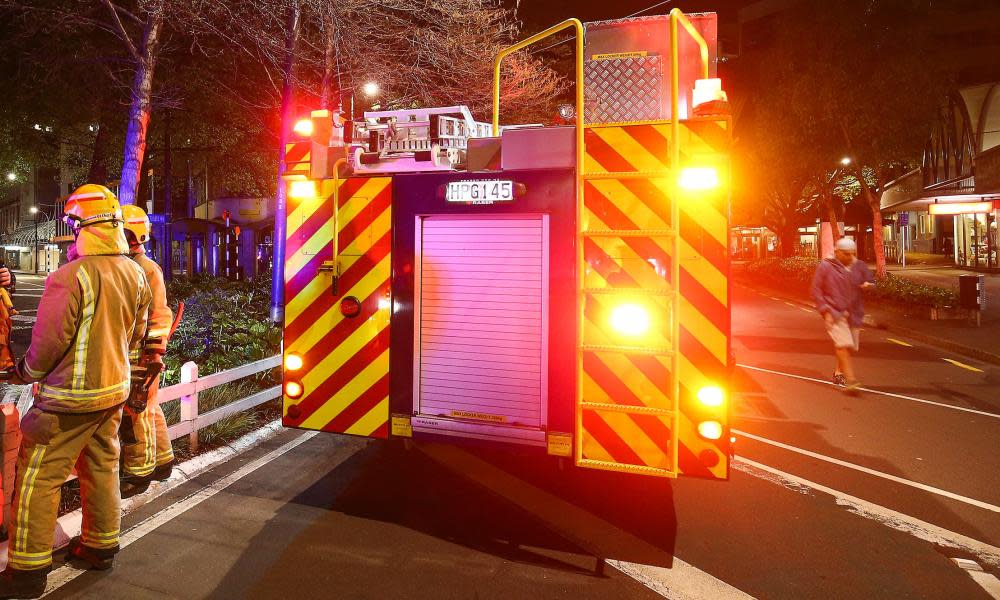New Zealand firefighters to hold first ever strike over staffing and equipment ‘crisis’

Nearly 2,000 professional firefighters will walk off the job for the first time in New Zealand’s history, citing a “crisis” within the sector and ongoing problems with poor pay, understaffing and unreliable fire equipment.
Members of the New Zealand Professional Firefighters Union have voted to strike for an hour on Friday morning in a complete work stoppage, after talks with employer Fire and Emergency (Fenz) broke down last week.
The strike action includes all career fire stations, training centres and 111 fire communications centres. The country’s 12,000 volunteer firefighters will not be participating, as they are not represented by the union.
The union’s secretary, Wattie Watson, said the strike was a last resort and that problems in the service had reached “crisis level”, with trucks are breaking down, hoses and equipment perishing and staff feeling the physical and mental strain from working overtime in risky situations.
The deputy national commander of Fenz, Brendan Nally, said it was disappointing the union had escalated strike action, despite a “substantial new pay offer which would see base salaries for all firefighters increase by between 8% and 19% over the next two years”.
Related: New Zealand Covid cases at six-month low in sign winter wave is easing
The organisation is “fully committed to trying to reach a settlement” but that over 13 months of negotiations, including 29 days of bargaining and three days of mediation, the union had not significantly moved from its position, Nally said.
“Our new offer is substantially more than our previous offer and reflects our strong desire to reach settlement,” he said.
Volunteer firefighters will still be on call to respond to emergencies, but Fenz has expressed concerned for public safety and has urged people to be vigilant during the hour-long strike, warning response times may be delayed in some areas.
Watson said Fenz was missing the point by focusing on pay problems alone.
“While wages for our membership are very low, this isn’t a battle focused on the wages,” she said. “We have incredibly low career staffing levels and they’re insufficient to maintain minimum staffing, and they have ageing and dilapidated appliances.
“[Staff] feel an immense personal pressure to continue to accept overtime, even when they are exhausted, even when their families have had enough because they do not want their colleagues and other crew members to be at risk,” Watson said.
The one-hour stoppages will continue on Friday mornings until the parties can come to a resolution, Watson said.
“[Firefighters] don’t want to do it, but they know they have to, because it is the only tool left in the toolkit to force Fenz to come back to the table and genuinely work with us.”
Watson said members were “absolutely” concerned about the risk to public safety during the strike. “The gravity of the situation has weighed heavily on our membership – it has take a lot for us to get to this point,” she said.

 Yahoo News
Yahoo News 